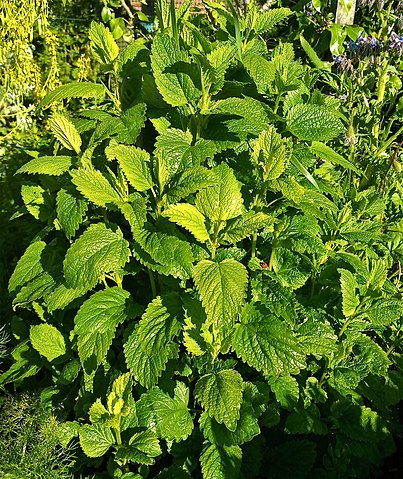Lemon balm (Melissa officinalis) is a fragrant and versatile herb with a wide range of uses and potential health benefits. Here’s a comprehensive guide to lemon balm, including its uses, benefits, and how to incorporate it into your daily life:
Culinary Uses:
- Flavoring: Lemon balm has a pleasant lemony flavor and is often used to add a citrusy twist to dishes and beverages. It can be used fresh or dried in salads, marinades, and desserts.

- Herbal Tea: Lemon balm makes a delightful herbal tea. Steeping fresh or dried leaves in hot water creates a soothing, lemon-flavored infusion.
Medicinal Uses:
- Calming and Relaxation: Lemon balm has mild sedative properties and is known for its calming effects. It can help reduce stress, anxiety, and promote relaxation. Drinking lemon balm tea before bedtime may aid in better sleep.
- Digestive Health: Lemon balm can ease digestive discomfort, including indigestion, gas, and bloating. It may also help with irritable bowel syndrome (IBS).
- Antioxidant Effects: Lemon balm is rich in antioxidants that protect the body from oxidative stress and free radical damage.
- Cold Sore Treatment: Lemon balm contains antiviral properties and is commonly used topically to alleviate the discomfort of cold sores (herpes labialis).
- Cognitive Function: Some studies suggest that lemon balm may support cognitive health, including memory and concentration.
- Mood Elevation: Lemon balm may have mood-enhancing effects and can help combat mild depression and low mood.
- Antibacterial and Antifungal: Lemon balm has natural antibacterial and antifungal properties that can help protect against infections and promote skin health.
How to Use Lemon Balm:
- Herbal Tea: Steep fresh or dried lemon balm leaves in hot water to make a refreshing and soothing tea. Add honey or lemon for extra flavor.
- Topical Applications: Create a lemon balm-infused oil or salve for skin issues like cold sores or minor skin irritations.
- Culinary Delights: Add fresh lemon balm leaves to salads, marinades, desserts, and even cocktails.
- Aromatherapy: Inhale the aroma of crushed lemon balm leaves to promote relaxation and reduce stress.
- Tinctures and Supplements: Lemon balm is available in tincture or supplement form for concentrated dosages.
Growing Lemon Balm:
- Location: Plant lemon balm in well-drained soil and a sunny or partially shaded area.
- Planting: Lemon balm can be grown from seeds, but it’s easier to propagate from cuttings or divisions. Plant it in the spring or fall.
- Maintenance: Regularly prune lemon balm to encourage bushier growth and prevent it from becoming invasive. It can spread rapidly.
- Harvesting: You can start harvesting lemon balm leaves once the plant is well-established. Snip off leaves as needed and dry them for later use.
Lemon balm is a versatile herb with a delightful lemony flavor and an array of potential health benefits. Whether used in culinary creations, herbal teas, or as a natural remedy, lemon balm can be a valuable addition to your daily life, offering soothing and uplifting properties.












